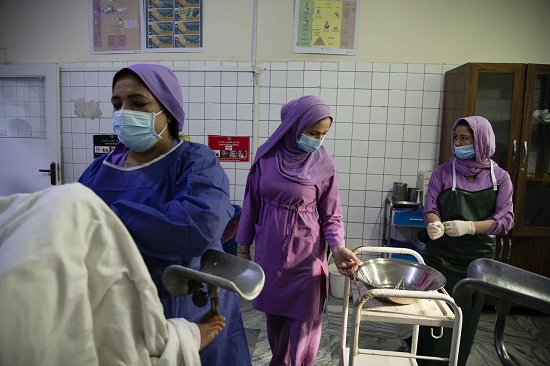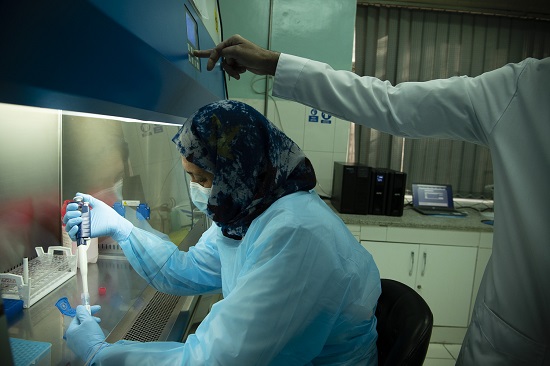
Kabul, Afghanistan, 8 March 2023— On International Women’s Day, the World Health Organization (WHO) in Afghanistan honours the sacrifices, resilience and bravery of female health workers who continue to deliver health services to the Afghan population, including women and girls, in the midst of the challenging country context.
Afghanistan remains one of the world’s largest and most severe humanitarian crises. A record 28.3 million people – some two thirds of the population – will require humanitarian and protection assistance in 2023, with more than 17 million Afghan people in need of health assistance. The highest burden of this health emergency is borne by women and children in Afghanistan, who continue to be marginalized and are increasingly at risk of poor health outcomes, specifically in the context of reproductive, maternal, newborn and child health.
“The female health workers of Afghanistan face extraordinary challenges, but they continue to reach women and girls wherever they are,” says Dr Luo Dapeng, WHO Representative in Afghanistan. “From the time a child is born, to vaccinating kids against diseases, to providing maternal health services, to treating them when sick, female health workers are always part of our lives. Today, and every day, we honour their heroic services to protect health and serve the vulnerable.”

Mrs Malika Sultani has been working as a midwife for 17 years at Injil Community Health Centre in Herat province and has been responsible for providing health services to pregnant women in the community. She says, “An educated woman could play vital roles in providing essential lifesaving health services. Women are a link between families, the community and health facilities – building the trust of the community, saving lives and reducing maternal mortality. International Women's Day is an important and historic day for women, especially women who are deprived of their personal, social and cultural rights, so that their voices can be heard by governments and the world.
Mrs Atifa Andisha, a doctor at the Guzarah District Hospital in Herat finds fulfillment in her role as a health worker. “As a female doctor, I work alongside our male staff in providing health services to the needy people, mainly women. For over 20 years, I have witnessed the incredible power of women every day. In the face of inequality and
A nutrition nurse Mrs Latifa Sakandari of Herat province advocates for education of women and girls. “Educated women and girls are an important part of the community, without them we won’t have a developed society and health community. We would like to have Afghan girls in schools and all women in the workforce. They should have their human rights and be able to be in academia and workplaces.
In 2022, WHO and partners served 18.1 million people in need of health assistance in Afghanistan, half of them women. To enhance the role of women in the scale up of humanitarian response in the country, WHO has increased its female workforce threefold compared to previous years. “We continue to increase the number of women in WHO and are committed to provide opportunities for women health workers,” adds Dr Dapeng.
WHO assures continuous support to empower women and girls, including advocating for access to health and education. On International Women’s Day, we salute female health workers for your services.
WHO’s work in advancing the role of women in the health sector is supported by: Afghanistan Humanitarian Fund, Bureau for Humanitarian Assistance – UASID, Bill & Melinda Gates Foundation, European Union Civil Protection and Humanitarian Aid (ECHO), Italy, Kuwait, Special Trust Fund for Afghanistan and the World Bank.
For more information, please contact:
Ms Joy Rivaca Caminade
Head, Communications
World Health Organization Afghanistan
Mobile: +93782200354 and WhatsApp and Viber: +639189064191
Email:
Website: http://www.emro.who.int/countries/afg/index.html
Facebook: https://www.facebook.com/WHOAfghanistan


